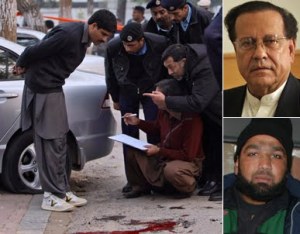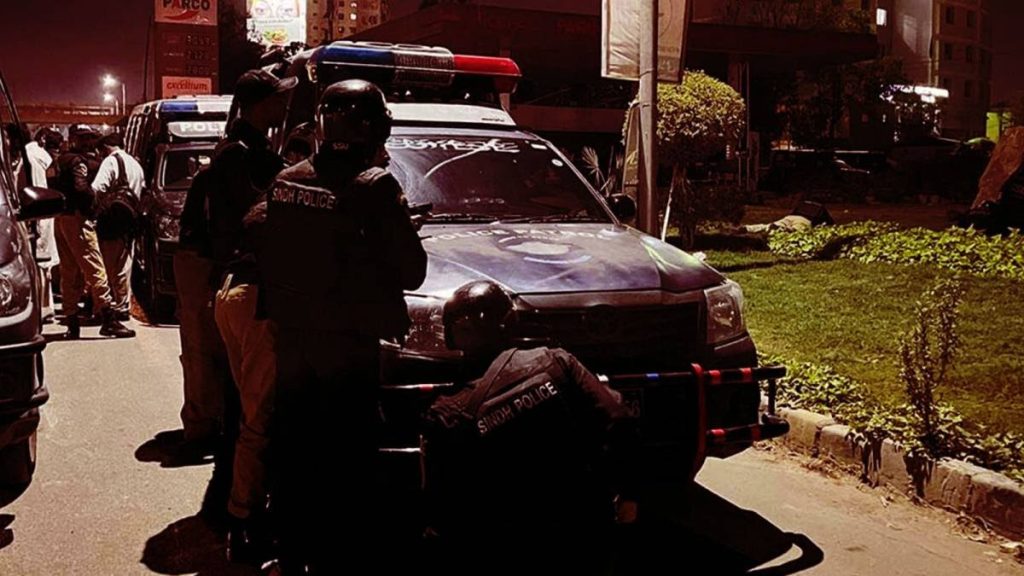
By Junaid Qaiser
The sanctity of law and order is a cornerstone of any civilized society. The primary responsibility of law enforcement agencies is to uphold this sanctity, protecting the lives and rights of all citizens. However, in Pakistan, the tragic reality is often far from this ideal, particularly when it comes to the sensitive issue of blasphemy.
The blasphemy laws in Pakistan are stringent and often misused, leading to severe consequences for those accused. Unfortunately, the situation is further exacerbated by the involvement of law enforcement agencies in extrajudicial killings and the rise of vigilantism. Numerous cases have come to light where individuals accused of blasphemy have been killed in custody or by mobs, often without the proper legal process being followed. One of the most notable cases is that of Asia Bibi. In her defense, Salman Taseer, the Governor of Punjab, was assassinated by his own security guard, Mumtaz Qadri. Qadri, despite committing murder, was celebrated as a hero by certain factions of society, raising troubling questions about the glorification of extrajudicial actions.
Pakistan has witnessed several cases where police officials were directly involved in the custodial killings of innocent people. Such actions not only erode the rule of law and restrict religious freedom, but they also create an environment where justice is obstructed, and human rights are violated.
Several individuals accused of blasphemy have lost their lives in prison or while in custody in Pakistan. Some of these notable cases include:
- Qamar David (2011): A Christian accused of blasphemy in 2006, Qamar David was found dead in his Karachi prison cell under suspicious circumstances. His family believes he was murdered due to his religious beliefs.
- Naimat Ahmar (1992): A Christian teacher from Faisalabad, Naimat Ahmar was killed by a student after being accused of blasphemy. Though he was not in prison, his murder followed the blasphemy accusation.
- Asghar Ali (2014): A British-Pakistani man suffering from mental illness, Asghar Ali was killed by a fellow inmate while awaiting trial in Adiala Jail, Rawalpindi, after being accused of blasphemy.
- Muhammad Yousaf (2020): Accused of blasphemy, Muhammad Yousaf was murdered by a fellow inmate in a Sialkot prison.
These are just a few tragic examples where blasphemy accusations have led to extrajudicial killings of individuals while they were in custody in Pakistan.
In particular, Christians have been vulnerable to false blasphemy allegations, leading to their deaths either in prison or court premises:
- Qamar David (2011): Accused of blasphemy and sentenced to life imprisonment, Qamar David died under suspicious circumstances in Karachi Central Jail. His family and human rights advocates believe he was murdered because of his faith.
- Rashid Emmanuel and Sajid Emmanuel (2010): Two Christian brothers accused of distributing blasphemous pamphlets were shot and killed by gunmen as they were being escorted from a court hearing in Faisalabad. Their deaths highlighted the vulnerability of Christians falsely accused of blasphemy.
- Pastor Zafar Bhatti (2022): Convicted of blasphemy in 2017 and sentenced to life in prison, Pastor Zafar Bhatti was murdered in Adiala Jail, Rawalpindi, in 2022. His case gained widespread attention due to the questionable charges against him.
The recent murders of Abdul Ali in Quetta and Dr. Shah Nawaz Shah highlight the disturbing trend of police involvement in these cases. In both instances, police officers were directly implicated in the killings of the accused, raising serious questions about the integrity of law enforcement agencies in Pakistan.

The ease with which social media identities can be manipulated poses a significant threat to individuals in Pakistan. False accusations can be fabricated and disseminated online, leading to devastating consequences. The lack of adequate safeguards to protect individuals from such malicious acts further contributes to the vulnerability of religious minorities.
These cases illustrate the dangerous environment faced by Christians and other minorities accused of blasphemy in Pakistan, even within judicial or prison settings that should provide security.
The future of Pakistan depends on its ability to uphold the principles of justice, equality, and human rights. By addressing the issue of blasphemy and ensuring that the law is enforced impartially, the country can take a significant step towards building a more just and equitable society.